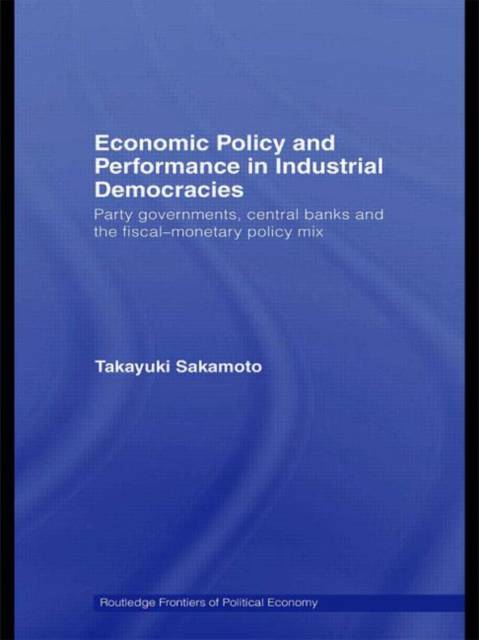
- Afhalen na 1 uur in een winkel met voorraad
- Gratis thuislevering in België vanaf € 30
- Ruim aanbod met 7 miljoen producten
- Afhalen na 1 uur in een winkel met voorraad
- Gratis thuislevering in België vanaf € 30
- Ruim aanbod met 7 miljoen producten
Economic Policy and Performance in Industrial Democracies
Party Governments, Central Banks and the Fiscal-Monetary Policy Mix
Takayuki SakamotoOmschrijving
This book is the first systematic study of how the interdependence of fiscal and monetary policies and the interaction of party governments and central banks affect the fiscal-policy mix in eighteen industrial democracies in North America, Western Europe, Japan and Oceania. Sakamoto argues that central banks' influence on economic policy is far more extensive than has been conventionally believed. He demonstrates that central banks systematically affect fiscal policy that is conducted by party governments, and that independent central banks restrain the latter's fiscal policy.
Sakamoto also demonstrates that the economic policy of industrial democracies did really change from the 1960s-1970s to the 1980s-1990s and became conservative as a result of the globalization of the economy and governments' response to it. But he argues that despite the neo-liberal policy shift, globalization has not diminished the role of domestic politics in economic policy.
Specificaties
Betrokkenen
- Auteur(s):
- Uitgeverij:
Inhoud
- Aantal bladzijden:
- 356
- Taal:
- Engels
- Reeks:
Eigenschappen
- Productcode (EAN):
- 9780415572279
- Verschijningsdatum:
- 24/11/2009
- Uitvoering:
- Paperback
- Formaat:
- Trade paperback (VS)
- Afmetingen:
- 156 mm x 234 mm
- Gewicht:
- 498 g

Alleen bij Standaard Boekhandel
Beoordelingen
We publiceren alleen reviews die voldoen aan de voorwaarden voor reviews. Bekijk onze voorwaarden voor reviews.











